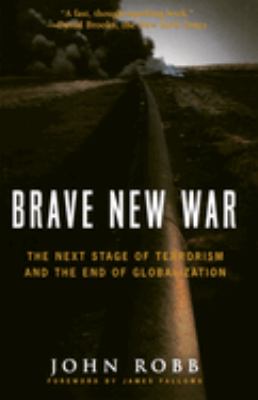
Book
|
Brave new war : the next stage of terrorism and the end of globalization
Copies
9 Total copies, 9 Copies are in,
0 Copies are out.
Title
Brave new war : the next stage of terrorism and the end of globalization
Call No
HV6431
Authors
Subjects
Language
English
Published
Hoboken, N.J. : John Wiley & Sons, ©2007.
Publication Desc
xvi, 208 p. ;
ISBN
9780471780793
(cloth)
LCCN
2006029354
Dimensions
23 cm.









